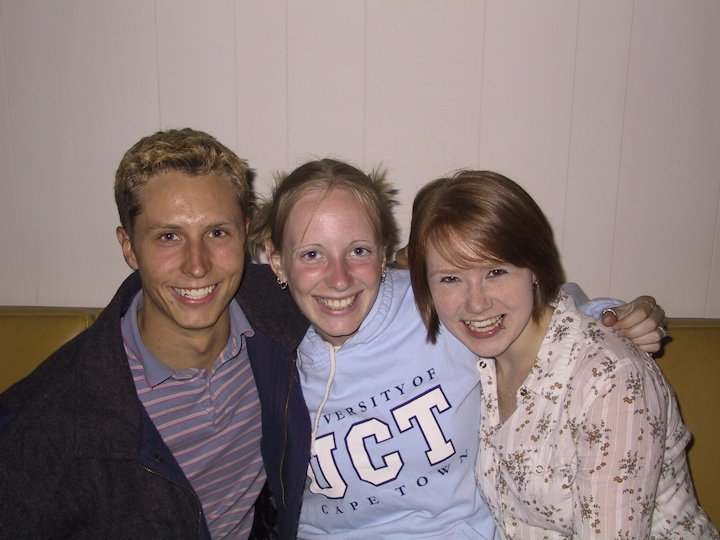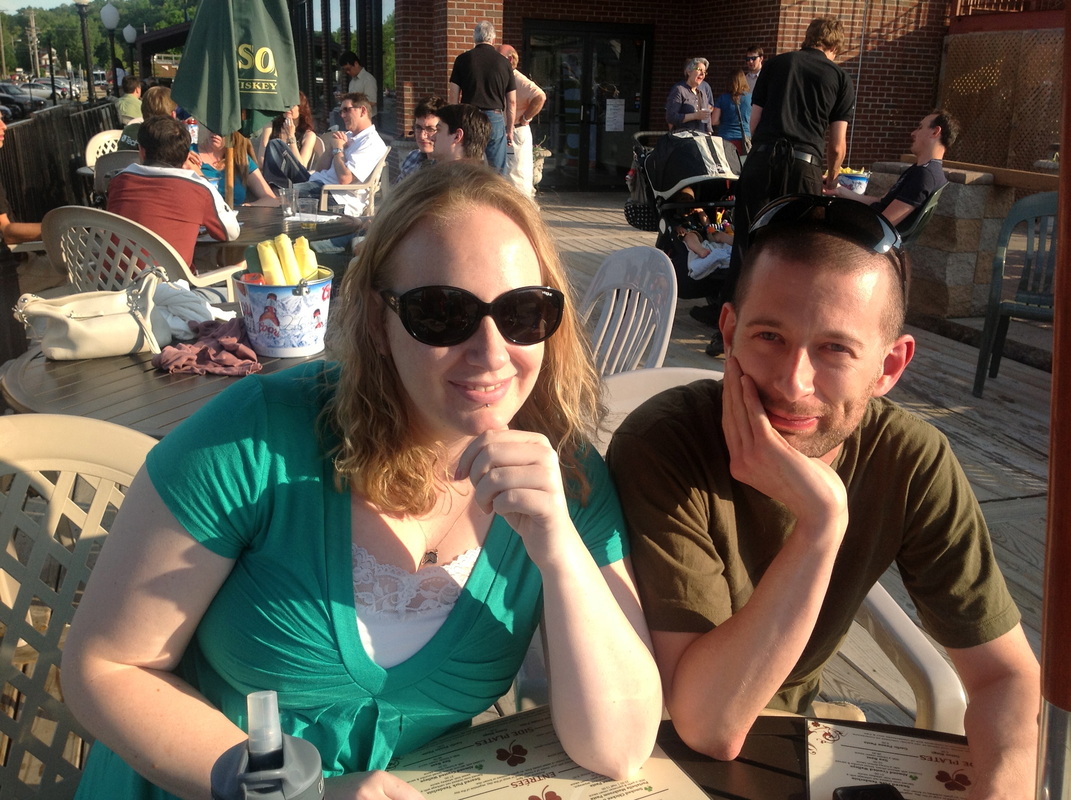My first real experience in a liminal space was the semester I spent abroad in South Africa. It was a pivotal time in my life, where it felt like everything was uprooted and yet I was stuck fast. Before I left, I started a livejournal to record my thoughts and experiences. Reading back over those early entries, I see the person I was then reflected clearly, and often painfully, through the writing. I see someone on the brink of her second decade alive, someone insecure, a little dissociated from emotions, as well as from experiences that elicited deep emotions, highly expositional and completely devoid of reflection or insight about life, adrift in a life that didn't feel comfortable or understandable. Someone desperately wanting a life that was worth living, worth noticing, worth having.
Someone who found a liminal space, and who was completely unsure about how to get out of it.
Those entries make me sad, because so much of who I was then was shaped by lack and distance. I write about my long-distance boyfriend, and the first real love of my life, who was not only far away, but barely communicative. I write about trying to reconcile the experience of being in South Africa, where everything was vibrant and alive, with my life back home, where everything was difficult and heavy. And although I had never been to South Africa before, from the minute I stepped off the plane, there was a visceral and intense love that I had never felt for a place before. By that point in my life, I had moved 18-20 times, or nearly one move per year of my life. Each time I moved that meant leaving friends, finding new routines, and starting over. But stepping onto the tarmac in Cape Town is seared into my fatigued retinas because it was the first time I had felt what rest, peace, and safety felt like. I always thought that those feelings rose out of the physical geography, the social structure, and political reconciliation that are so unique to South Africa. In fact, I believed that wholeheartedly...until now.
But that wasn't it. I loved, and still love, South Africa for all those reasons. However, what I fell in love with was not the land, but the people. And while I found the people of South Africa to be warm, friendly, and generally pretty amazing, that's not who I fell in love with. The people I grew to love was the group who had travelled to South Africa to study with me: the nineteen other students, our professor, and her husband.
For the first time in my life, I wasn't alone. Now, I'd had roommates before, but I had never spent 24 hours a day for six weeks with those roommates. I had never been so surrounded by and dependent on people before in my life. And yet, here were 22 other people, with whom I had little in common except for an address and the name on our diplomas,; here were 22 people who became my family.
That's not to say I loved them all, or that I loved them all the time. Like any family, there are people with whom it's best (for the sake of your sanity) to limit contact. My livejournal entries bear witness to the fact that I didn't find it easy to live with several of our group members. But the thing that strikes me as well, is how much I came to depend on the two people with whom I became close - Traci and Murray. We called ourselves The Collective because it seemed like we shared a single brain, along with our food, music, and possessions.
Here's my favourite picture of our time together. It's one of my favourite pictures ever, actually.
If the trip had been a vacation, we may have become this close. But it wasn't. It was a study abroad trip, and we made up a learning cohort. We read the same books, visited the same museum, reflected and evaluated each other's writing and research, discussed politics, religion, culture, and our place in the world. For the first time ever, I was learning alongside other people, and I found that they did not detract from my learning. In fact, they were responsible for a lot of it. The experience of being, as well as learning and seeing and doing, created a place in which I felt at home, and safe, and love for the first time in my adult (or nearly-adult) life.
After college, we each went our separate ways. Traci went to grad school in Hawaii, Murray got married and travelled the world taking photographs and exploring, and I became a teacher. But my memories of that time are inextricable from the memory of being part of the collective. From them, I learned how to find beauty in liminal spaces. Everything we did in South Africa was temporary, and we always knew that it would end. We travelled nearly constantly, but some of the best moments were the ones in which we weren't moving. The morning on the beach in Plett Bay, where we watched dolphins play in the surf as the sun rose. The afternoon on the wrap-around balcony overlooking Long Street, where we each read from the same book, comparing notes as we read. The evening we walked down the street leading away from Table Mountain, arm-in-arm, leaning towards the rapidly approaching dusk.
There was never a lack of great beauty on that trip...but it was always contrasted with extreme poverty. We were not adults, but not children. We were not students, but not tourists. As far as the collective was concerned, we were three people, but also one person.
After the course was over, Traci and Murray went back home, and I stayed on for several weeks. Watching them get on the bus that would take them to the airport reminded me that no liminal space lasts forever. They went home to restart their real life, and I stayed to try and find a life where I could fit in, that made sense, that made me feel like I could answer the question "Who are you?" or even "Where are you from?" I have spent the last fifteen years of my life trying to answer those questions. And the only time that I had an answer to either question was the brief time I spent with Traci and Murray, travelling the length and breadth of a country I still don't understand, but love deeply.
That is, it was the only time that I could answer those questions before a year ago, today.
One year ago today, I met Andrew Thomasson. And one week ago, I actually met Andrew Thomasson. Here is my new favourite picture.
Maybe the beauty of a liminal space is in its fragility. Maybe the only reason liminal spaces resonate so much in our lives is that they, by definition, have to end. Maybe it's our attempt to hold on to the limited time that makes the time more present, more meaningful. The week in Minnesota had to end, because we both had to return to our real lives, where pixels replace true face-to-face time.
Small things, insignificant things, can change everything. Responding to a tweet brought me the best friend and collaborative partner I've ever had. Working with him has meant that a nearly impossible job - six new preps, 310 students, a hostile school culture, and a faculty that resisted collaboration and technology - and turned it into the best, most fun year of my nine year career.
We have tried many times to explain or define our collaborative partnership, but it has proved impervious to labels. The first rule we have for working together is not about work - it's about putting the friendship first. Now that we've returned home, we find that it's harder to work together now that we're not in the same room...even though we built everything on cross-country collaboration. It's hard work, but also pretty amazingly fun work.
But there is one thing I can say: responding to that tweet a year ago from some random teacher in North Carolina has changed my life. And I am so grateful for not only the time we spent together in Minnesota, but the collaborative partnership and friendship that made it possible.
Here's to another year, and to the promise that this year will be better than the last.




 RSS Feed
RSS Feed
